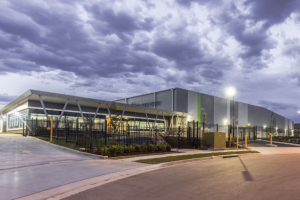Science firm pioneers safe radioactive oil disposal

A high-tech company spun out of the University of Manchester has completed a pioneering trial to safely and cheaply dispose of radioactive waste at a nuclear power station.
The process invented by Arvia Technology, now based at Daresbury Science and Innovation Campus, could have significant implications for the global nuclear industry as it looks to find better ways of dealing with radioactive oil during decommissioning.
The company used an organic waste treatment solution to dispose of ‘orphan radioactive oil’ at the Magnox Trawsfynydd power station, North Wales.
Arvia technical director Dr Nigel Brown said: “The success of this approach has major positive implications for the global nuclear industry. Scores of power stations are in the process of being decommissioned across the world and our technology provides a safe and relatively low-cost to the problem of dealing with radioactive organics such as oil.”
Radioactive oil, categorised as Intermediate Level Waste (ILW), is one of the most difficult waste challenges for the nuclear sector.
Strict regulations mean conventional disposal processes are expensive and require significant logistical resources.
Off-site incineration, at facilities as far afield as Sweden, is both costly and lengthy, while the alternative, passive storage, is problematic also and is limited by the tendency for oil to deteriorate the cement in which it is encased.
Arvia adapted water treatment technology into a practical on-site solution that was both low-cost and low-energy for site operator Magnox. It was originally conceived by Dr Brown and further developed through the University of Manchester.
John Collinson, Magnox’s waste director, said: “”This option has great potential for Magnox as we look for innovative and transformational solutions which will help us deal with our ILW inventory whilst delivering value to the UK taxpayer.”








